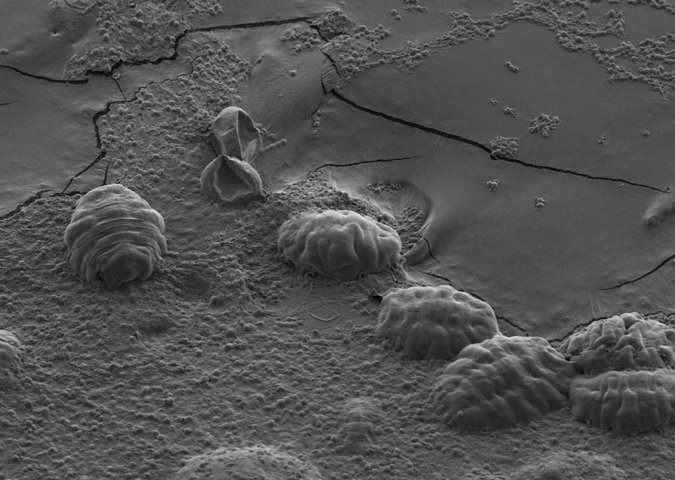
World’s toughest bears can survive dried out life
Recently scientists have found that water bears who are termed as the toughest bear so far can survive in the terrestrial land without getting dried out. Read more to found out the scientific secret behind it.
These water bears are microscopic in nature and are known as Tardigrades. Tardigrades are the most resilient animals on the Earth. Though they are known as Water bears but they can survive on both freezing temperature and dried out areas for several days. These water bears can survive almost 10 years without water in dried weather. They survive in desiccated shells in dried out weather and can come back to life once the environment is friendly.
Scientists who were working on the research initially thought that the tardigrades were surviving desiccation by using a sugar called trehalose. In bacteria and fungi, trehalose can turn the inside of cells to a glass-like matrix that keeps proteins from being damaged in super dry conditions. The process is known as vitrification that allows dried-up organisms to hold proteins and molecules together until the organism is rehydrated and can get back to business.
But things were proved wrong when they looked closely into their body types. When they looked closely, researchers found that trehalose was barely detectable in water bears, and that some species don’t have the ability to make the sugar at all. So researchers at the University of North Carolina at Chapel Hill set out to find what the tardigrades were doing to regenerate.
Dr. Boothby said, “That’s probably the most exciting thing. There’s a good solution, which is vitrification, for surviving desiccation. And nature has basically found two ways to do that. One way uses a sugar, and the other way uses a completely different molecule, a protein. But both kind of go to the same ends.”
According to Dr. Boothby, these water bears hide themselves through a process known as anhydrobiosis. Later he found out that these water bears have some special type of genes that creates protein within their body in dried out weather which helps them to come back to life once the environment around them is friendly. “When we looked at which genes are activated most during that drying stress, the genes that encode the disordered proteins jumped right to the top of the list,” Boothby said.
According to Dr. Boothby, these proteins can be used for pharmaceutical usage and informed that “A lot of protein-based pharmaceuticals are very effective but also very unstable,” he says.
The main concept behind researching on these proteins is to find out whether these proteins are really helpful for human life and if they are then the researchers will start finding ways to preserve these proteins for pharmaceutical use. According to the scientists these proteins if stabilised can be used to preserve sensitive proteins in near future.


